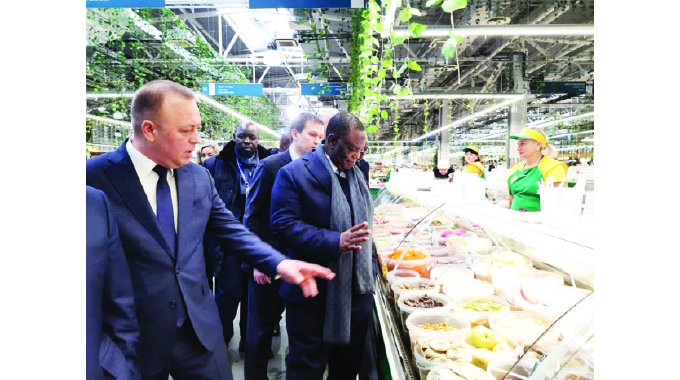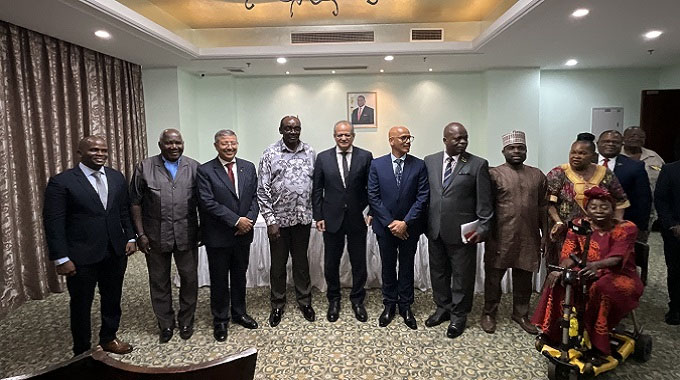Zim taps into Russian agric model

Mukudzei Chingwere in KAZAN, Russia
RUSSIA’s agriculture model is climate-proof with a vibrant commercial and subsistence sector that has high levels of marketing and mart access, so this excites the Zimbabwean Government and parts of it can be used in Zimbabwe.
Vice President Dr Constantino Chiwenga toured the Kazan Agro-Industrial Park and the Komoc Milk and Dairy Processing Plant here on the sidelines of the ongoing Phygital Games of the Future Kazan 2024.
VP Chiwenga, who has since returned home, was particularly impressed by the Russian model of empowerment for small scale farmers. Of major interest was an agro-industrial park with a 12 000-farmer holding capacity which gives farmers direct access to the final consumer.
Its operation has solutions to most of the problems bedevilling local farmers where they have to access consumers through third parties, grappling with the need to immediately push perishable goods sometimes at the detriment of their profit margins.
“I am impressed by their agriculture. The Agri-Park we saw where farmers are assisted to come and sell their products, store and value add their produce and has four functional areas that are storage, processing, sales and marketing,” said VP Chiwenga.
“When you are there you think you are in a supermarket. This Agri-Industrial Park provides backward and forward integration to farmers, all under one roof.
“Zimbabwe is an agro-based economy, so, why can’t we do that at home at our markets, we will do it at our people’s markets, we need to have this kind of arrangement at Mbare and all our people’s markets.
“We are keen to invest on similar infrastructure to accelerate value addition and beneficiation of our agricultural produce and empower farmers.
“This is a real value chain business case that we may wish to replicate. Also, if you look at their dairy, they produce and export all over the world and their production line is hi-tech with less human handling because this is an edible product.
“I was impressed the most with the concept of quality control which makes the products competitive and qualify for local consumption and export.
“So, this is what we want to see and we can do it at home and these are the areas I spoke with the Rais (the Tartarstan leader). We talked of having a delegation coming to Zimbabwe and also a Zimbabwean delegation coming here to study their system.
“They have a beautiful irrigation system, and we can do joint ventures. We want all our dams to be used,” said VP Chiwenga.
Managing director of the 50 000 square metres Tatarstan Agri-Industrial Park Mr Oleg Vlasov said the park was aimed at helping small scale farmers get value for their produce, and the initiative came from the Government.
“This serves the people of Tatarstan,” said Mr Vlasov.
“It is produced in such a way that it supports small businesses producing agro products. My boss, the Rais, has directed that if you get a phone call from farmers who want a place to sell their produce even at 2am, you have to quickly assist them.
“The main mission of this facility is not about commercial profit for us, it is to support the people,” said Mr Vlasov.
Also, after being invited to come and set up manufacturing hubs in Zimbabwe, the deputy general director and manager of the Kazan Dairy Plant, Mr Alexey Viktorovich, said investment into Zimbabwe was an exciting venture which they will explore.
“The prospect of coming and investing in Zimbabwe is a very interesting opportunity we need to study and see if we can bring our technology to Zimbabwe for the benefit of the Zimbabwean community,” said Mr Viktorovich.








Comments